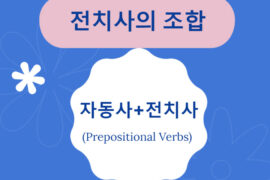부사절 풀이 다잡아 (5)
[13~15] 다음 글을 읽고, 물음에 답하시오.
Pablo Picasso once remarked, “The best calculation is the absence of calculation. Once you have (A) [attained / retained] a certain level of recognition, others generally figure that when you do something, it’s for an intelligent reason. So it’s really foolish to plot out your movements too carefully in advance. You’re better off acting _______.” For a while, Picasso worked with the art dealer Paul Rosenberg. At first he allowed him a fair amount of latitude in handling his paintings, then one day, for no apparent reason, he told the man he would no longer give him any work to sell. As Picasso explained, “Rosenberg would spend the next forty-eight hours trying to figure out why. Was I reserving things for some other dealer? I’d go on working and sleeping and Rosenberg would spend his time figuring. In two days he’d come back, nerves jangled, anxious, saying, ‘After all, dear friend, you wouldn’t (B) [turn me down / turn down me] if I offered you this much (naming a substantially higher figure) for those paintings rather than the price I’ve been accustomed to (C) [pay / paying] you, would you?’”
13. 위 글의 빈 칸에 들어갈 말로 가장 적절한 것을 고르시오.
① deliberately ② unwisely
③ awkwardly ④ capriciously
⑤ rightly
14. (A), (B), (C)의 [ ]에 들어갈 어법/어휘로 가장 적절한 것은?
| (A) | (B) | (C) | |
|---|---|---|---|
| ① | attained | turn me down | pay |
| ② | attained | turn me down | paying |
| ③ | attained | turn down me | pay |
| ④ | retained | turn me down | paying |
| ⑤ | retained | turn down me | pay |
15. 위 글의 내용을 한 문장으로 요약하고자 한다. 빈칸 (A)와 (B)에 들어갈 말로 가장 적절한 것은?
The more (A) you appear, the more (B) you will gain. |
(A) (B)
① predictable ……………. interest
② predictable ……………. confidence
③ indecisive ……..………. support
④ unpredictable …..……. distrust
⑤ unpredictable …………. respect

정답 및 해설
13. [해설] 정답 ④
be better off doing something은 ‘~하는 게 더 낫다’는 비교급 표현이다. 따라서 빈칸에 들어갈 말은 앞 문장(it’s really foolish to plot out your movements too carefully in advance.)과 대조적인 ④번이 맞다. foolish(어리석은)만 보고 unwisely를 고르면 오답에 속게 된다.
14. [해설] 정답 ②
(A) 스펠링 혼돈을 주는 어휘문제이다. 전후 문맥상 attained가 맞다. (B) 구동사의 목적어로 대명사가 나오면 글의 어순은 동사+대명사+부사 순이다. (C) to가 부정사인지 전치사인지를 묻는 문제다. ~에 익숙하다 뜻의 be accustomed to 뒤에는 명사 또는 동명사가 따른다.
15. [해설] 정답 ⑤
당신이 (A) 종잡을 수 없게 보일수록, 당신은 더 많은 (B) 존경을 받을 것이다. |
요약문은 본문을 읽기 보다는 먼저 선택지를 본다. 선택지 (A)의 ①~⑤ 가운데 ①, ②와 ④, ⑤가 같은 단어를 쌍으로 출제했다. 이 경우 한 개로 출제된 ③번은 오답으로 처리한다. 요약문의 지문은 이중비교인 the 비교급 ~, the 비교급이다. ③번을 제외하고 ①에서 ⑤까지 빈칸 (A)와 (B)에 선택지에 제시된 단어를 대입해본다.
① 당신이 너무 뻔해 보일수록, 당신은 더욱 많은 관심을 얻을 것이다. ② 당신이 너무 뻔해 보일수록, 당신은 더욱 자신감을 얻을 것이다. ①번과 ②번은 터무니 없는 말이므로 오답으로 처리한다.
④ 당신이 예측할 수 없게 보일수록, 당신은 더욱 불신을 얻게 될 것이다. ⑤ 당신이 예측할 수 없게 보일수록, 당신은 더욱 존경을 받을 것이다. ④번과 ⑤번 가운데 정답은 문제를 푸는 사람들의 생각과 경험에 따라 달라질 수도 있다고 본다. 둘 중 답을 고르기 어렵다면 이제 본문을 읽어볼 차례이다.
해석 및 어휘
[해석] 파블로 피카소는 언젠가 “최고의 손익계산은 (사리에 맞는) 계산을 하지 않는 것이다. 일단 당신이 일정 수준의 인식에 (A) 도달한다면 (대중들로부터 인정을 받는다면), 다른 일반인들은 당신이 무언가를 하면, 그러한 행동은 사리에 맞는 이유일거라고 생각한다. 따라서 사전에 너무 신중하게 당신의 모든 일거수일투족을 구상하는 일은 정말 어리석은 짓이다. 당신은 변덕스럽게 행동하는 게 더 낫다,” 고 언급했었다. 얼마 동안 피카소는 미술상인 폴 로젠버그와 함께 일했다. 처음에 그는 로젠버그에게 자신의 그림을 취급하는데 상당한 자유를 (권한을) 허용했다. 그러다가 어느 날, 명백한 이유 없이 피카소는 로젠버그에게 더 이상 어떠한 작품도 팔도록 허락하지 않을 거라고 말했다. 피카소가 말한 대로, “로젠버그는 피카소가 왜 갑자기 그런 행동을 했는지를 알고자 이틀을 꼬박 보낼 것이다. 내가 다른 미술상에게 내 그림을 거래하고자 남겨두었단 말인가? 나는 (전처럼 하던 대로) 계속 그림을 그리고 잠을 잘 것이지만 로젠버그는 자신의 시간을 나의 의도를 알아내는데 보낼 것이다. 이틀 후 그가 돌아왔을 때, 신경이 곤두선 채, 염려스러운 듯 말을 했다. ‘어쨌든, 친한 친구여, 내가 자네에게 (C) 습관적으로 지불해온 가격보다 상당히 높은 가격을 지불한다면 (B) 나의 제안을 거부하지 않겠죠, 그렇지요?’”
[어휘] attain 이루다, 도달하다 / plot out (이야기 등의) 줄거리를 짜다, 구상하다 / in advance 사전에 / be better off doing something ~하는 게 형편이 더 낫다 / capriciously 변덕스럽게, 불규칙적으로 / deliberately 고의로, 의도적으로 / randomly 무작위로 / awkwardly 어색하게, 서투르게 / art dealer 미술상 / a fair amount of 상당한 / latitude 위도, (행동 방식의) 자유 / for no apparent reason 명백한 이유 없이 / jangle 신경이 곤두서다 / substantially 상당히
구문
Once you have attained a certain level of recognition, // others generally figure that {when you do something}, it’s for an intelligent reason.
→ Once는 ‘일단 ~하면’ 뜻의 종속 접속사이다. { } 부분은 접속사 that 뒤에 종속절을 끼워 넣었다.
At first he allowed him a fair amount of latitude in handling his paintings,
→ in + doing = when S+V
→ in handling = when he handled
Rosenberg would spend the next forty-eight hours trying to figure out why.
→ spend + 목적어(돈 or 시간) + doing(동명사): ~하는데 ~을 쓰다






